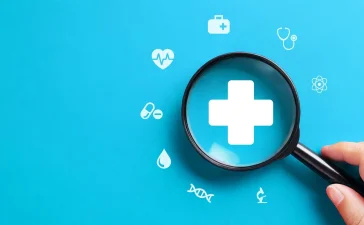Healthcare is undergoing a period of rapid transformation. From groundbreaking technologies to a renewed focus on preventive care, the medical field is evolving to meet the needs of a growing and aging population. Modern medicine is no longer just about treating illnesses—it is about improving quality of life, extending life expectancy, and making care more accessible than ever before. These changes are revolutionizing how we think about health, treatment, and the future of medicine.
The Shift Toward Personalized Medicine
One of the most significant advances in recent years is personalized, or precision, medicine. Unlike the traditional “one-size-fits-all” approach, personalized medicine tailors treatments to individual patients by analyzing their genetic information, environment, and lifestyle.
This method is already making a difference in fields like oncology. Genetic testing can identify the specific mutations driving a patient’s cancer, allowing doctors to prescribe targeted therapies that directly attack the cancer cells. These treatments tend to be more effective and produce fewer side effects than conventional chemotherapy.
Pharmacogenomics—the study of how genes influence drug response—is also helping doctors determine which medications will work best for each person, reducing trial-and-error prescribing and improving outcomes. This personalized approach is setting a new standard for patient care.
The Rise of Telemedicine and Digital Health
Digital technology has become an essential part of modern healthcare, making medical services more convenient and accessible. Telemedicine, once considered a niche option, is now a primary tool for delivering care, especially since the COVID-19 pandemic. Patients can consult with doctors virtually, saving time and reducing barriers for those in rural or underserved areas.

In addition to virtual visits, wearable health devices such as smartwatches and fitness trackers allow patients to monitor vital signs like heart rate, blood oxygen levels, and even irregular heart rhythms. This data can be shared directly with healthcare providers, enabling early intervention and better chronic disease management.
Mobile health apps also encourage people to take control of their health, from tracking medications to providing personalized fitness and nutrition guidance. Together, these tools are helping patients stay healthier while giving doctors valuable insights into their daily lives.
Artificial Intelligence in Diagnosis and Treatment
Artificial intelligence (AI) is becoming one of the most powerful tools in healthcare. AI algorithms can process massive amounts of data quickly, helping doctors diagnose diseases, predict outcomes, and develop personalized treatment plans.
AI has proven especially effective in analyzing medical images like X-rays, CT scans, and MRIs. In many cases, AI systems can detect signs of disease—such as early-stage cancer or heart problems—more accurately than human specialists. This leads to earlier diagnoses, which can significantly improve patient outcomes.
Beyond diagnostics, AI is accelerating drug discovery by analyzing biological data to identify potential treatments faster than traditional research methods. Hospitals also use AI to streamline operations, improve patient scheduling, and reduce costs, allowing doctors to spend more time on direct patient care.
Breakthroughs in Regenerative Medicine
Regenerative medicine is another field revolutionizing how we treat disease. Using stem cells, tissue engineering, and even lab-grown organs, scientists are finding ways to repair or replace damaged tissues and organs.
Stem cell therapies show promise in treating conditions like spinal cord injuries, heart disease, and degenerative illnesses such as Parkinson’s. Researchers are also making progress in growing functional organs in laboratories, potentially addressing the severe shortage of donor organs and saving countless lives.
These advances offer hope for patients with chronic or untreatable conditions and could dramatically change the future of healthcare.
A Focus on Preventive Care and Lifestyle Medicine
While medical technology is advancing, prevention remains one of the most effective strategies for improving health. Chronic diseases like diabetes, cardiovascular disease, and obesity are among the leading causes of death worldwide, yet many are preventable through lifestyle changes.
Lifestyle medicine is a growing discipline that uses nutrition, exercise, stress management, and sleep optimization to help prevent and even reverse chronic conditions. Doctors are increasingly prescribing lifestyle interventions alongside—or in some cases instead of—medication to help patients achieve lasting improvements in health.
Public health campaigns and workplace wellness programs are also encouraging people to take a proactive role in their well-being, aiming to reduce the long-term burden of preventable diseases on individuals and healthcare systems.
Addressing Mental Health as Part of Overall Care
Modern healthcare recognizes that mental health is inseparable from physical health. Conditions like anxiety, depression, and stress-related disorders are on the rise, and addressing them is now a priority for healthcare providers.
Teletherapy and mental health apps have expanded access to care, making it easier for individuals to seek support. Integrating mental health services into primary care settings also ensures patients receive holistic treatment, improving both emotional and physical outcomes.
By acknowledging the strong connection between mental and physical health, the medical field is helping individuals achieve true overall wellness.
Confronting Global Health Challenges
Despite rapid innovation, healthcare faces significant challenges. Antibiotic resistance threatens to undo decades of progress, while access to basic care remains limited in many parts of the world. Climate change is creating new public health threats, from the spread of infectious diseases to an increase in heat-related illnesses.
To tackle these issues, global collaboration is essential. Governments, private companies, and nonprofits are working together to develop new antibiotics, expand vaccine access, and strengthen healthcare infrastructure in underserved regions. These efforts aim to ensure that advances in medicine benefit everyone—not just those in wealthy nations.
Looking Ahead: The Next Era of Medicine
The future of medicine promises even greater breakthroughs. Gene-editing technologies like CRISPR, 3D-printed organs, robotic surgeries, and advanced remote monitoring systems are on the horizon. These innovations will not only extend life but also improve the quality of those extra years, helping people live longer, healthier, and more active lives.

However, with progress comes responsibility. Ensuring these advancements are affordable, ethical, and widely accessible will be critical. The challenge for the next generation of healthcare is to balance innovation with equity, ensuring no one is left behind.
Conclusion: Building a Healthier World
Modern medicine is changing faster than ever, offering new hope for patients and redefining how we approach health and wellness. From personalized treatments and telemedicine to regenerative therapies and preventive care, these advancements are helping people live longer, healthier lives.
Yet, the ultimate goal of medicine is not just to extend life—it’s to enhance its quality. By embracing innovation while prioritizing accessibility and prevention, we can create a future where everyone has the opportunity to thrive, not just survive.





